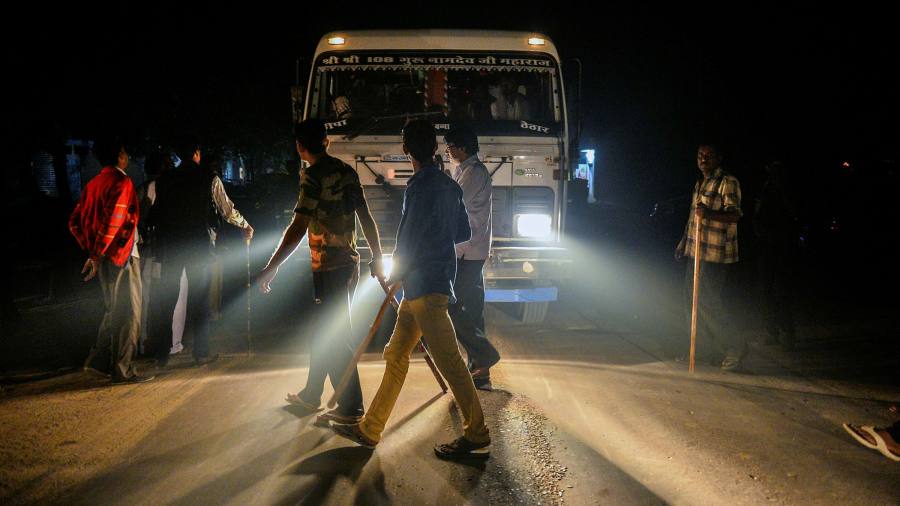[ad_1]
Megha Majumdar’s gut-wrenching debut novel explores India’s tryst with Hindu nationalist populism, and the degradation of its criminal justice system, through three characters caught up in turbulence that echoes real-life contemporary events.
Jivan is a 22-year-old working-class Muslim woman, an upwardly mobile department store clerk, who witnesses a terrorist attack on a train in which 100 people — passengers and residents of the slum adjacent to the station — die. Afterwards, as she watches the outpouring of public rage on social media on her new phone, she is struck by a video of a distraught woman, screaming that police stood idly by and did not help those trapped in the burning train.
Jivan writes a Facebook post that asks: “If the police didn’t help ordinary people like you and me, if the police watched them die, doesn’t that mean that the government is also a terrorist?†It is, she admits, “a dangerous thing, a thing nobody like me should ever think, let alone writeâ€.
Days later, Jivan is arrested, accused of carrying out the attack herself, and vilified in the media. As her case moves through a court system heavily influenced by popular sentiment, Jivan’s fate is intertwined with the fortunes of the two other protagonists, who knew her previously and are called on to testify.
Lovely is a big-hearted hijra — part of India’s traditional transgender community — who learnt English from Jivan and dreams of being a film actress. An outsider who has endured her own heavy losses, Lovely is sympathetic towards her former tutor but is advised that by offering Jivan public support she could jeopardise her own prospects of stardom.
PT Sir is a physical education teacher at the posh private girls’ school where Jivan was a “charity†student, and who has found purpose and enhanced status through his involvement with the Jana Kalyan party, a thinly veiled version of India’s ruling BJP.
He carries out his party’s dirty work — including giving false court testimony against accused men from “the minority religion that encourages the eating of beef†— and is rewarded with rapidly rising social and financial status.
The book’s short, briskly paced sections alternate between the perspective of each of the three main characters as the narrative — set in the US-based Majumdar’s bustling home town of Kolkata — unfolds, and they make their fateful choices.
These are interspersed with spotlights on others caught up in India’s tumult: Jivan’s parents; Lovely’s fellow drama student, humiliated at a glitzy new shopping mall; and a man who joins villagers in murdering a Muslim neighbour they suspect of eating beef, a fictional incident that mirrors an all-too-real killing in India in 2015.
But the main focus is on Lovely and PT Sir, whose acts of omission and commission seal Jivan’s fate, which is relayed in spare, bleak prose.
In its focus on moral choices amid political extremism, A Burning echoes Russian novelist Vasily Grossman’s Forever Flowing from 1970 (also translated as Everything Flows), which explores the motives of those who denounced friends, relatives and neighbours during Stalinism.
Yet the book is far from Grossman’s Soviet gloom. Majumdar’s Kolkata pulses with the energy of a population in which nearly everyone is on the make — and willing to cheerfully sacrifice others, with only brief flickers of conscience, to get ahead.
A Burning is a taut and compelling tale of aspirational Indians who are looking away, or actively collaborating, as Hindu extremist politics tightens its grip.
A Burning, by Megha Majumdar, Scribner, RRP£14.99, 304 pagesÂ
Amy Kazmin is the FT’s South Asia bureau chief
Join our online book group on Facebook at FT Books Café
Listen to our podcast Culture Call, where FT editors and special guests discuss life and art in the time of coronavirus. Subscribe on Apple, Spotify, or wherever you listen
[ad_2]
Source link






